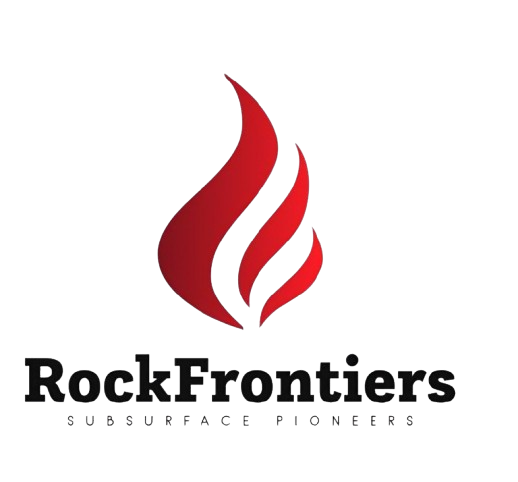Advanced Drilling Fluids and Technology
Course Overview: This course provides in-depth knowledge of advanced drilling fluids and their application in complex drilling operations. Participants will learn about the latest technologies in drilling fluid systems, their role in wellbore stability, well control, and how to select …
Overview
Course Overview:
This course provides in-depth knowledge of advanced drilling fluids and their application in complex drilling operations. Participants will learn about the latest technologies in drilling fluid systems, their role in wellbore stability, well control, and how to select and design drilling fluids for different geological conditions.
📅 Day 1: Introduction to Drilling Fluids
-
09:00–09:45 – Overview of drilling fluids: definitions, importance, and functions
-
09:45–10:30 – Types of drilling fluids: water-based, oil-based, synthetic-based, and foam
-
10:30–10:45 – ☕ Coffee Break
-
10:45–11:30 – The role of drilling fluids in wellbore stability, pressure control, and cuttings removal
-
11:30–12:15 – Key properties of drilling fluids: rheology, viscosity, filtration, and density
-
12:15–13:15 – 🍽️ Lunch Break
-
13:15–14:00 – Composition of drilling fluids: additives and their function
-
14:00–14:45 – Design considerations for drilling fluid systems
-
14:45–15:00 – Recap and Q&A
📅 Day 2: Advanced Drilling Fluid Technologies
-
09:00–09:45 – Advanced drilling fluid systems: synthetic and high-performance fluids
-
09:45–10:30 – Drilling fluid behavior in complex environments: high-temperature, high-pressure, and deepwater conditions
-
10:30–10:45 – ☕ Coffee Break
-
10:45–11:30 – Smart drilling fluids: using nanotechnology and advanced materials
-
11:30–12:15 – Drilling fluid additives: viscosifiers, pH control, thinners, and lost circulation materials
-
12:15–13:15 – 🍽️ Lunch Break
-
13:15–14:00 – Monitoring and controlling drilling fluid properties in real-time
-
14:00–14:45 – Case study: application of advanced drilling fluids in challenging drilling environments
-
14:45–15:00 – Recap and Q&A
📅 Day 3: Drilling Fluids in High-Pressure, High-Temperature (HPHT) Environments
-
09:00–09:45 – The challenges of drilling in HPHT environments
-
09:45–10:30 – Designing HPHT-compliant drilling fluids: material selection, thermal stability, and pressure resistance
-
10:30–10:45 – ☕ Coffee Break
-
10:45–11:30 – The impact of HPHT conditions on fluid performance: viscosity, filtration, and foam control
-
11:30–12:15 – Case study: drilling fluid systems for deepwater HPHT wells
-
12:15–13:15 – 🍽️ Lunch Break
-
13:15–14:00 – Drilling fluid testing for HPHT applications: lab methods and field tests
-
14:00–14:45 – Maintaining wellbore stability in HPHT environments with advanced fluid technologies
-
14:45–15:00 – Recap and Q&A
📅 Day 4: Drilling Fluids for Unconventional Reservoirs
-
09:00–09:45 – Drilling fluid design for unconventional reservoirs: shale, coal bed methane, and tight gas
-
09:45–10:30 – Managing wellbore instability in unconventional reservoirs with tailored drilling fluids
-
10:30–10:45 – ☕ Coffee Break
-
10:45–11:30 – Role of fluid systems in hydraulic fracturing and stimulation of unconventional wells
-
11:30–12:15 – Non-aqueous fluids and their application in low-permeability reservoirs
-
12:15–13:15 – 🍽️ Lunch Break
-
13:15–14:00 – Managing fluid loss, formation damage, and excessive filtrate invasion in unconventional drilling
-
14:00–14:45 – Advanced technologies in drilling fluid management for unconventional reservoirs
-
14:45–15:00 – Recap and Q&A
📅 Day 5: Drilling Fluid System Maintenance and Environmental Considerations
-
09:00–09:45 – Drilling fluid maintenance: reconditioning, treatment, and recycling
-
09:45–10:30 – Managing fluid waste and the environmental impact of drilling fluids
-
10:30–10:45 – ☕ Coffee Break
-
10:45–11:30 – Environmentally friendly drilling fluids: biodegradable and low-toxicity fluids
-
11:30–12:15 – Regulatory frameworks for drilling fluid disposal and waste management
-
12:15–13:15 – 🍽️ Lunch Break
-
13:15–14:00 – Real-time monitoring and optimization of fluid systems during drilling operations
-
14:00–14:45 – Group activity: designing a complete drilling fluid system for a complex reservoir
-
14:45–15:00 – Recap, Q&A, and course wrap-up
Target audiences
- Reservoir Engineers, Geologists
You May Like
📘 Underbalanced Drilling (UBD) Techniques and Safety
🎯 Course Description: This intensive 5-day program focuses on Underbalanced Drilling (UBD) – an advanced technique used to drill wells where the hydrostatic pressure of the fluid is intentionally kept below formation pressure. Participants will learn how to implement UBD …
📘 IOSH Managing Safely
🎯 Course Description: A practical, 5-day program designed to help managers and supervisors learn how to manage safety and environmental responsibilities in their teams. Emphasis is placed on identifying risks, measuring performance, and leading safely using internationally recognized good practices. …
📘 IWCF Level 3 Well Control (Surface BOP)
🎯 Course Description: This is an intensive course aimed at drilling / well service personnel needing to gain supervisory competence in well control using surface blow‑out preventers (BOP) under the IWCF standard. It covers theory, hands‑on practice, and assessments for …
Advanced Specialist Petroleum GeoMechanics
📘 Course Description: This elite-level course is tailored for petroleum geomechanics specialists and senior subsurface professionals engaged in complex field development projects. It provides a deep technical dive into stress modeling, anisotropic rock behavior, coupled geomechanical-reservoir simulation, fault/fracture mechanics, and …
📘 OSHA 30‑Hour General Industry Safety and Health
🎯 Course Description: This 5‑day course provides in‐depth knowledge of workplace safety and health in general industry sectors. It covers OSHA regulations, hazard recognition, safety programs, and industry best practices. Participants will gain the expertise needed to maintain a safe …






